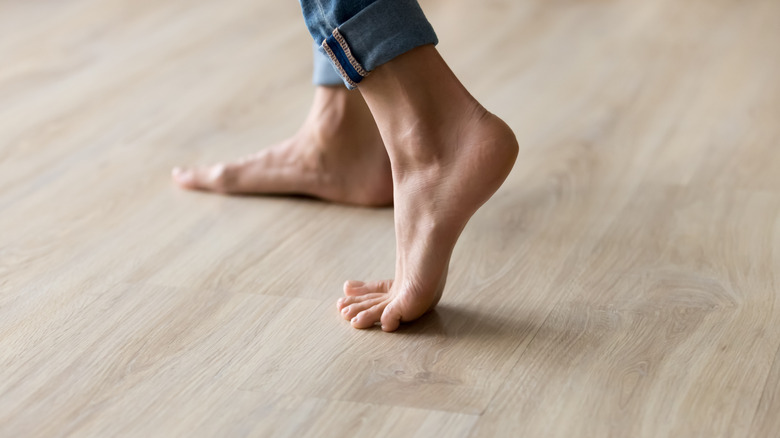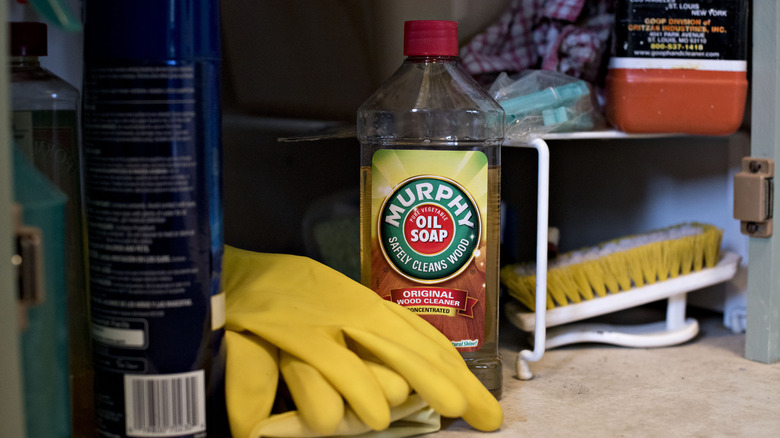Prevent Laminate Floors From Cracking With This Age-Old Fix
Sneaking around isn't always a bad thing. Anyone who's had a sleeping baby in the house knows this. As does anyone who has tried to help Santa and the tooth fairy perform their duties, or made their way to the kitchen for a late-night cookie. Owners of laminate floors often have a tough time being stealthy because their floors have a habit of creaking and popping when stepped on, which can sound like fireworks in the middle of the night in a quiet house. One way to muffle your late-night shuffle is to clean your floors with that old standby, Murphy Oil Soap.
This time-honored cleaner (everyone who remembers a grandparent cleaning with Murphy Oil Soap, raise your hands) accomplishes this feat by lubricating floor joints. Floating laminate floors are designed to expand and contract as a room's temperature and humidity change, so there's some amount of movement built into their interlocking design. Most cracking and popping, though, happens when the flooring is laid on a slightly uneven subfloor, or one with even minor gaps and voids. These imperfections cause the flooring to move a bit more than it should when you walk on them, causing the interlocking parts to move sharply (and noisily) against each other. Just as baby powder can fix squeaky wood floors, a tiny bit of lubrication can make floor movement smoother and quieter.
Using Murphy Oil Soap to quiet your creaks
You can take advantage of this benefit of Murphy Oil Soap by simply using the cleaner according to the package directions. Simply dilute ¼-cup of the soap in a gallon of water and use it for simple mopping. Be careful not to use too much water; leaving puddles on laminate floors can lead to damage. The tiny amount of soap that's left behind in the cracks between your laminate floorboards is often enough to decrease your creaks, in the same way that bar soap can fix squeaky hardwood floors.
It's probably unsurprising that something called "oil soap" would have lubricating properties, right? That's what oil does, after all. But Murphy Oil Soap doesn't actually contain any oil, aside from a tiny amount of citronella oil used as a fragrance. The soap in it is made with oil, though, a byproduct of wood pulping called tall oil. Tall oil is used to make sodium tallate which is often used as a lubricant. Even better — if you get a bit overzealous in your quest to eliminate squeaky floors and use too much Murphy Oil Soap, sodium tallate is dissolved by water and is easy to get rid of. A quick mopping with vinegar and water should do the trick. But if you stick with the instructions on the label, you shouldn't have any problem.

